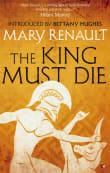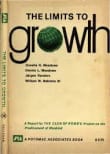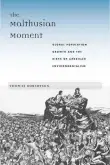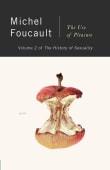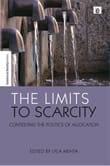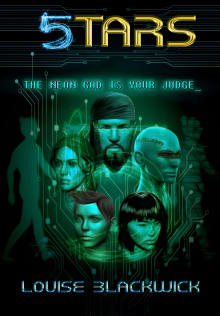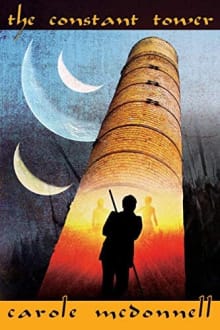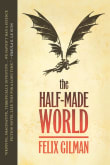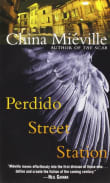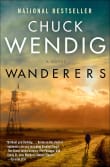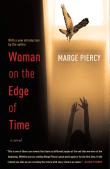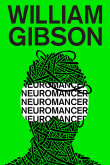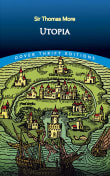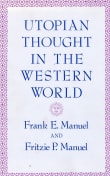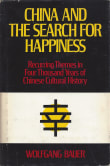The Dispossessed
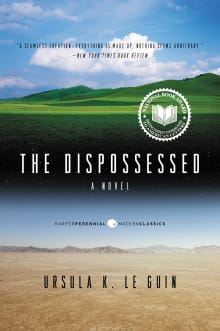
Book description
One of the very best must-read novels of all time - with a new introduction by Roddy Doyle
'A well told tale signifying a good deal; one to be read again and again' THE TIMES
'The book I wish I had written ... It's so far away from my own…
Why read it?
18 authors picked The Dispossessed as one of their favorite books. Why do they recommend it?

The book offers an in-depth exploration of how an anarchist, anti-capitalist society without money or government would work and juxtaposes it against a more familiar, wasteful, capitalist world. It's thought-provoking and can be a great tool for self-exploration because this world isn’t easy to live in and has its own challenges.
Even though it took me a long time to get into the story, once I did, I was fascinated by all the details. It's unlike other stories. It offers ideas that don't often get explored in speculative fiction, and it left me with a lot to think about.
From Alina's list on solarpunk that proves people can work together.

I think this book is a masterful work that offers insights into the human experience. Through its richly imagined worlds and characters, the story invites readers to ponder timeless questions about society, relationships, individuality, and the pursuit of a better world.
I liked exploring the two worlds in the story, one a society where individual achievement is overshadowed by the collective good, and another was a portrayal of capitalism with hierarchy and stark social divisions. The protagonist finds himself alienated from both worlds, unable to reconcile his ideals with the realities he encounters.
I liked the way the story confronts…
From Larry's list on explore strange worlds and new societies.

It took me two reads to actually like this book, which is probably not the best way to start this, but in Ursula K. Le Guin, we trust. This book is fascinating not just in content but also set up, as its chapters always follow the main character, Shevek, but alternate between two timelines spent on either the lush planet Urras or its desolate moon Anarres.
I loved the juxtaposition of the two and how the book challenged me to see all the similarities hiding beneath the glaring differences between these worlds and their people. Le Guin is unafraid to…
From K.N.'s list on Sci-fi with worlds that may as well be characters.
If you love The Dispossessed...

I found this book (whose subtitle is “An Ambiguous Utopia”) one of the most thought-provoking works of fiction I have read.
The Dispossessed was my first introduction to anarchism as a political platform, and while it didn’t make an anarchist out of me, it was the book that allowed me to imagine anarchism as a coherent political philosophy. Practically every page of the book offers a critique of modern capitalism, and it’s impossible to read this book without considering the structures in our world today that ensure a system of haves and have-nots.
From Joseph's list on fantasy-science fiction books that explore class and inequality.

This book lives on in my mind as if it’s my own memory.
LeGuin’s anarcho-syndicalist utopia Annares is a convincing, very different kind of society, one without possessions, and based on cooperation. In some ways, it is reminiscent of my native Norway, for example, in how issues of ungenerous conventionality and conformism war with higher ideals.
This book has a coolness to it, and the main character, Shevek, who travels to another planet in the hopes of finding a connection and pursuing science, experiences profound loneliness.
It is the best kind of science fiction. It addresses something unsayable that yet…

This is the grandmother of all great utopian fiction, my favorite science-fiction novel by my favorite science-fiction author, and the number-one source of inspiration for my book.
The novel opens on a moon (not ours) where a utopian anarchist society has long existed, but is now under threat from a host of antagonists on the mother planet. The novel is masterful because it is both enormous in scope (covering entire economies and political structures) but also extremely intimate (following one man, one relationship, one family).
The novel does not have to do with the climate crisis, or Earth, but I’m…
From Nick's list on ward away your global warming anxiety.
If you love Ursula K. Le Guin...

The classic study of the balance between written and unwritten rules, Le Guin’s story of two societies – one full of written rules, but with extreme freedoms, and one with no written rules, but full of carefully enforced social norms – is both a thrilling and thought-provoking read. It speaks to the underlying humanness of our social milieu.
From A.'s list on across the boundary of poetry, science, and society.

49 years after The Dispossessed was first published, the internet is full of user reviews written by people who claim that it changed their lives, enthralled them, made them true believers, made them want to move to the moon. I, too, am one of these people.
The Dispossessed is a book about anarchists on the moon. It divides the 20th-century ideological standoff over whether modern life should be governed by competitive (capitalist, hierarchical) or cooperative (socialist, egalitarian) logics with an expanse of interplanetary space.
An anarchist physicist named Shevek (modeled after J. Robert Oppenheimer) travels between the two planets –…
From Xenia's list on the possibility of collectivist modern life.

Ursula Le Guin is a league of her own.
The Dispossessed is an anarchist utopian science fiction novel, a masterpiece, and part of the seven Hainish Cycle books.
The Dispossessed compares the life on two twin planets, one capitalist and patriarchic, one anarcho-syndicalist.
If you know little about the theoretical background of anarchy, here’s an easy way to pick it up! Le Guin labelled the book an “Ambiguous Utopia” – one of her strengths lies in making you think and to contemplate the deeper implications of her stories.
If you are out for more intellectual fun, visit the ambisexual people…
From Karin's list on utopian visions of feminist economics.
If you love The Dispossessed...

The clue’s in the title of this one: in Le Guin’s high-concept future (set on the moon of Anarres, though it’s effectively a stand-in for what Earth could one day be like), human beings are…free. Free from materialism, the wage system, resource hoarding, political one-upmanship, rampant industrialism and all those fantastically capitalist things that have turned our planet into a dystopian factory. The anarcho-syndicalism of Anarres may not appeal to everyone’s tastes, but The Dispossessed offers a fascinating look at how a society that puts the collective ahead of personal desires could work in practice.
From Grant's list on science fiction that paint high-concept futures.
Want books like The Dispossessed?
Our community of 12,000+ authors has personally recommended 100 books like The Dispossessed.




